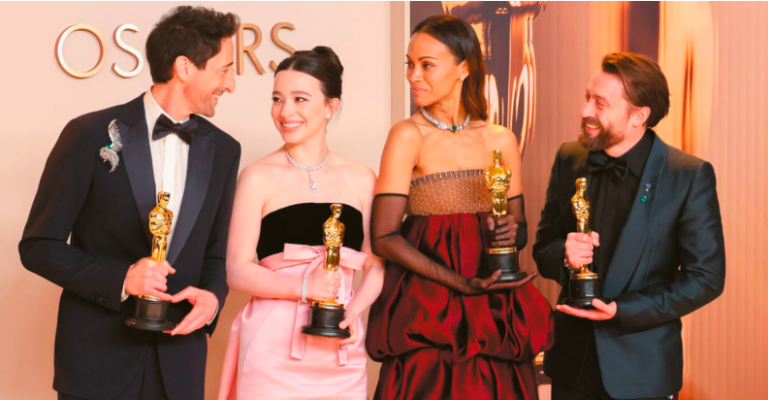As Every Year
Red carpet, feverish atmosphere, frantic pace. Flashbulbs, cameras, spotlights. The gazes of admirers and the poised stances of the stars. Men in well-tailored tuxedos, women in designer gowns. Encircled by an aura of dazzling vitality and waves of electromagnetic energy. The suspense of the sparkling occasion was heightened by the awarding of the golden statuette. The 97th Academy Awards were entering the final stretch. Hollywood’s biggest “night”—how ironic—was kicking off at 4 in the afternoon.
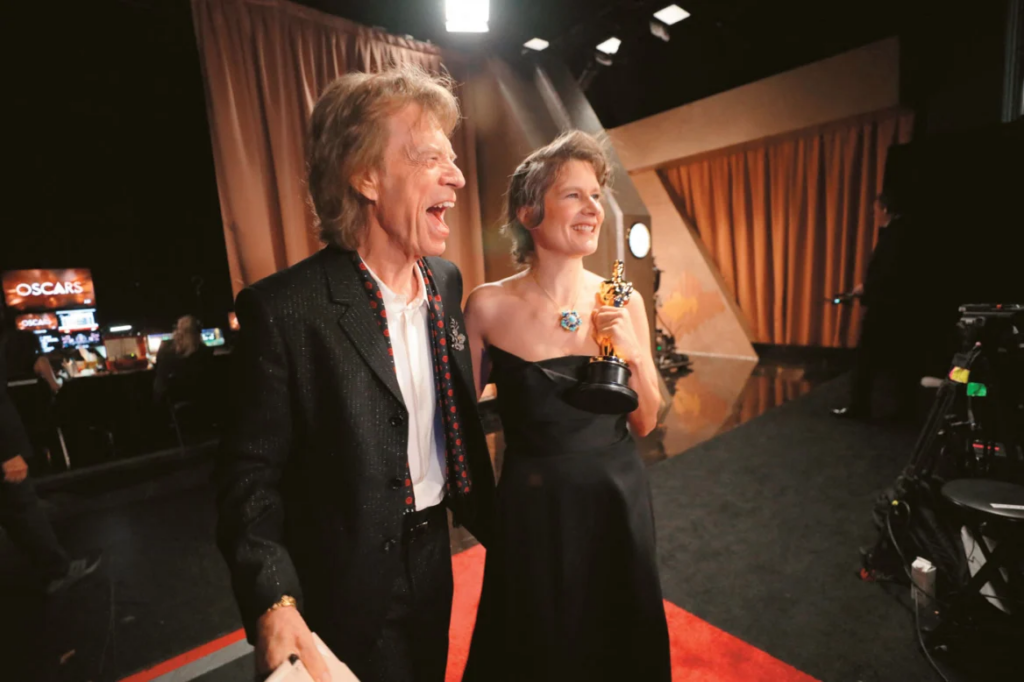
Strange, isn’t it? That’s what Greek viewers who stayed up until the early hours of Clean Monday, March 3rd, realized as they tuned in to watch the Academy Awards live on a local subscription channel. What can you do? Award ceremonies are a peculiar kind of television spectacle. Essentially, they’re like a lavish corporate symposium for any self-respecting industry that wants to honor its work and achievements. On the other hand, the broadcast aims to entertain audiences who aren’t present at the event. However, what makes the night spectacular for an industry celebrating itself doesn’t always translate into an equally thrilling experience for those watching from home. Let’s be honest.
Activism is Over, Cinema is Back – The Message of the 2025 Oscars
This isn’t some self-referential marketing event for a detergent company broadcasted live. This is Hollywood. The master of crafting imaginative stories, narrating them through cinematic visuals, and creating mesmerizing entertainment spectacles. Hollywood knows exactly how to stay in the limelight, mythologize itself, and use its famous, talented lineup to captivate global attention. It has the power, the skill, and the experience to remain perpetually appealing to the masses. After all, an entertainment industry without an audience is unthinkable—even if it now quietly trembles at the prospect of Artificial Intelligence taking over its job.
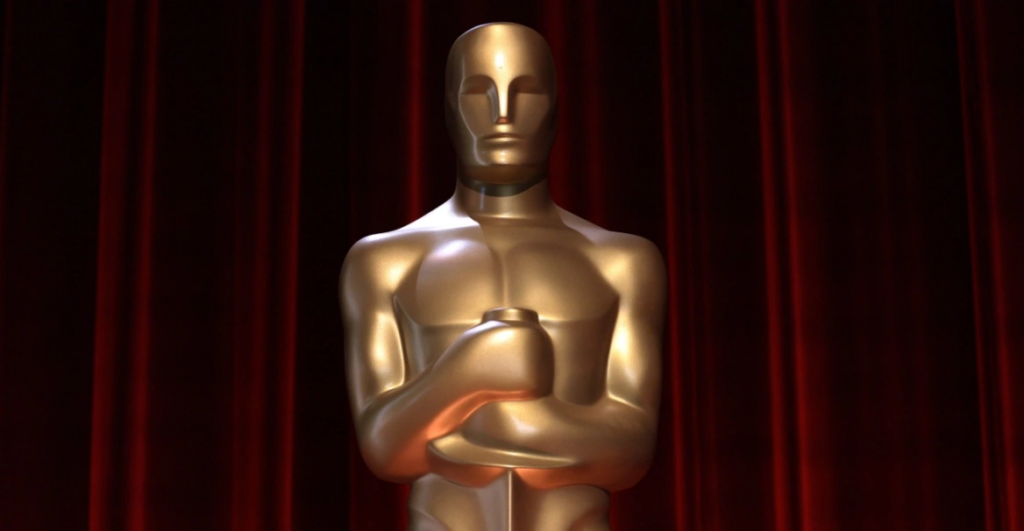
The Surprises
In every sense, this year’s Oscars, all things considered, lived up to most expectations. They may not have bewitched the 20 million ABC viewers, the countless social media users, and the global Oscar faithful, but they weren’t a lukewarm affair either. It wasn’t a monotonous recital of winners thanking their families and collaborators in trembling voices. The event had its charm.
It delivered some clever ideas, orchestrated a few surprises, and offered a decent spectacle—let’s call it a “glitzy” ceremony. More importantly, it reaffirmed the charming illusion that Hollywood remains a uniquely dazzling land of delightful dreams. A place where people come to chase a life of creative work, fame, and, oh yes, wealth.
For his part, first-time host Conan O’Brien set a relaxed and friendly tone, making the evening feel effortless. The comedian—formerly a writer for The Simpsons and a late-night talk show host—relied on his signature humor and personal brand of irony to engage the audience, without offending anyone among the 3,000+ guests in the hall.
Mick Jagger Presents the Best Original Song Winner
And then, on the Dolby Theatre stage—formerly the Kodak Theatre in Los Angeles—Mick Jagger made an unexpected entrance to announce the winner for Best Original Song. Equally surprising was Quentin Tarantino’s appearance to present the Best Director award. Meg Ryan and Billy Crystal also took the stage to revive memories of When Harry Met Sally, adding a touch of nostalgic romance to the night. In a similar throwback mood, the orchestra paid tribute to James Bond films with a medley of iconic scores and performances.
Morgan Freeman, meanwhile, introduced the tribute video honoring artists who passed away over the past year. With heartfelt applause, he paid personal tribute to the “irreplaceable” legend Gene Hackman and also honored James Earl Jones, Anouk Aimée, Quincy Jones, Donald Sutherland, David Lynch, and others. However, one notable omission—perhaps an oversight rather than a snub—was the legendary French actor Alain Delon. Even the most meticulously planned ceremonies aren’t immune to slip-ups.
The Struggles
Gone are the days when the Oscars were a sugar-coated, caramelized treat. Even this year, they barely made it to the ceremony in one piece. In recent years, the film industry has been battered by the pandemic and union strikes. It has also faced destabilization from the rise of streaming platforms. More recently, the devastating Los Angeles wildfires left many industry workers in crisis and even cast doubt on whether the annual ceremony would take place.
Amid these stressors, Hollywood’s once-passionate commitment to celebrating diversity, equality, and resistance to power’s arrogance seems to have faded. Just a few years ago, the majority of stars rallied behind Kamala Harris and the Democrats—just as they did for Hillary Clinton in 2016—only for their support to prove futile.
Following last November’s election, the American star system found itself adrift. In a state of post-traumatic shock, it is now struggling to find its place in a public sphere increasingly terrified by censorship, budget cuts to the arts, divisive revenge politics, and an administration whose values make truth and dignity feel like relics of a bygone era. The dawn of Donald Trump’s second term in the White House is testing Hollywood’s traditions.
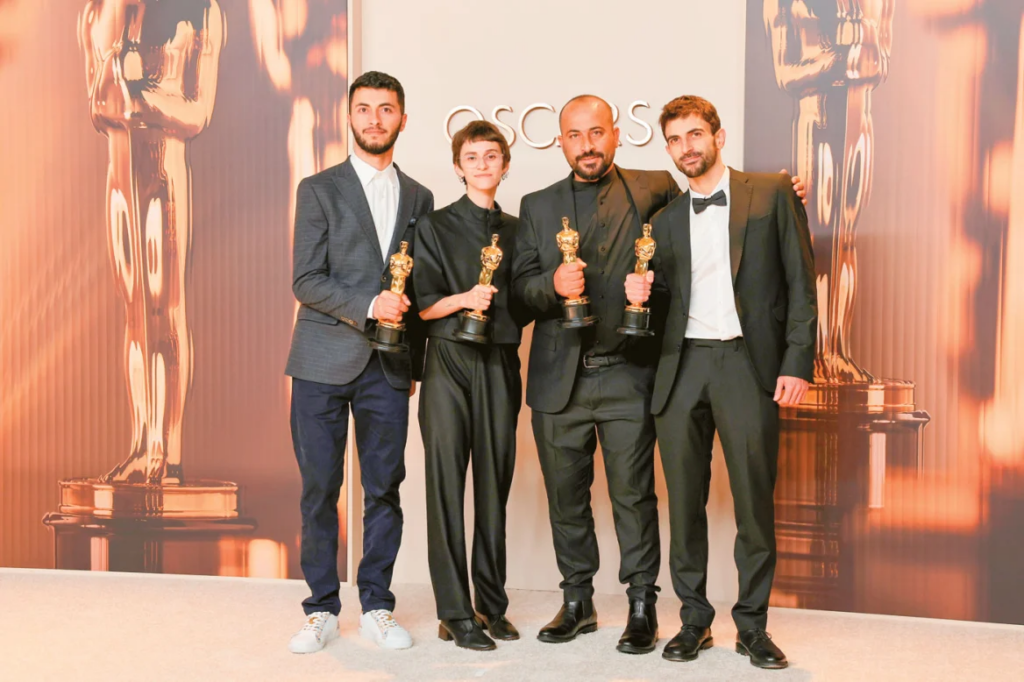
Once upon a time, a fiery political speech was practically a given at the Oscars. Back then, conservatives condemned the stars for what they said. Today, progressives condemn them for what they don’t say. Hollywood’s once-powerful voice—so influential in both pop culture and activism—now seems hesitant to rise above the noise. Instead, it sticks to professional glamor, safe jokes, polite well-wishes, and the occasional vague nod to the world’s suffering.

Lukewarm Reactions
In a politically muted evening, Conan O’Brien’s mention of “divisive politics” in his opening monologue wasn’t enough to spice things up. Neither was Daryl Hannah’s “Slava Ukraini!” (Glory to Ukraine!) when presenting the Best Editing Oscar. Even Adrien Brody’s long speech after winning Best Actor for The Brutalist, calling for “a healthier, happier, and above all, more inclusive world,” didn’t quite stir the audience. His plea—“If history has taught us anything, it’s that we must not let hatred prevail”—was met with polite glances rather than fervent applause.
Zoe Saldaña’s emotional speech after winning Best Supporting Actress for Emilia Pérez, in which she proudly highlighted her immigrant heritage and Dominican roots, was touching but uncontroversial. Nothing that would pop Hollywood’s self-indulgent, glittering bubble. No remarks about immigration policies, racism, sexism, or minority rights—topics that might have ruffled feathers at the White House.
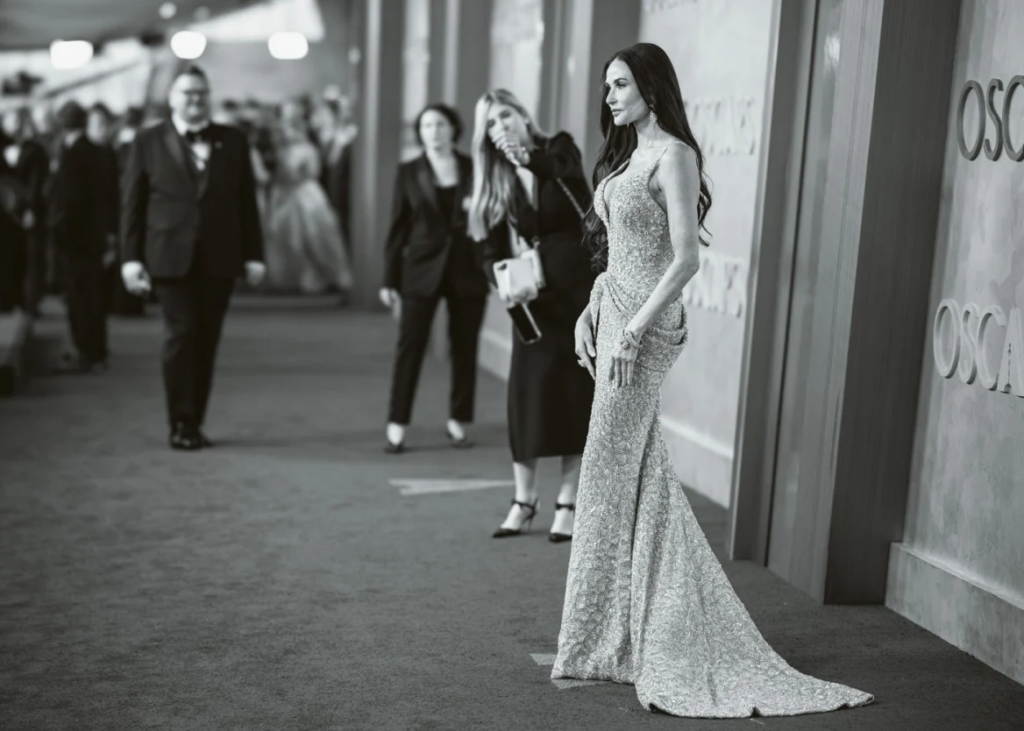
The Oscars’ historically complex relationship with politics seemed to vanish into thin air. Whether this shift reflects a retreat from the rigid dogma of political correctness or a fear of MAGA-fueled backlash remains unclear. One thing is certain: there were no politically charged, manifesto-like films among this year’s nominees to ignite debate.
The one glaring exception? The documentary No Other Land, directed collaboratively by Israeli and Palestinian filmmakers, which won Best Documentary. Their powerful speech condemning the suffering in Gaza was met with heartfelt applause. Yet, despite the warm reception, the film has yet to secure theatrical distribution in the U.S.
Back to the Glamor
After this brief moment of political engagement, the night quickly returned to its usual themes: heartfelt declarations about cinema as both a refuge and a beacon of hope. Cue the emotional tears from dreamers worldwide, who aspire to one day wear the dazzling gowns admired by fashion reporters squeezed among the 175 journalists covering the event from the Loews Hollywood Hotel, right next to the Dolby Theatre.
Activism is Over, Cinema is Back. That’s the 2025 Oscars.
Ask me anything
Explore related questions
